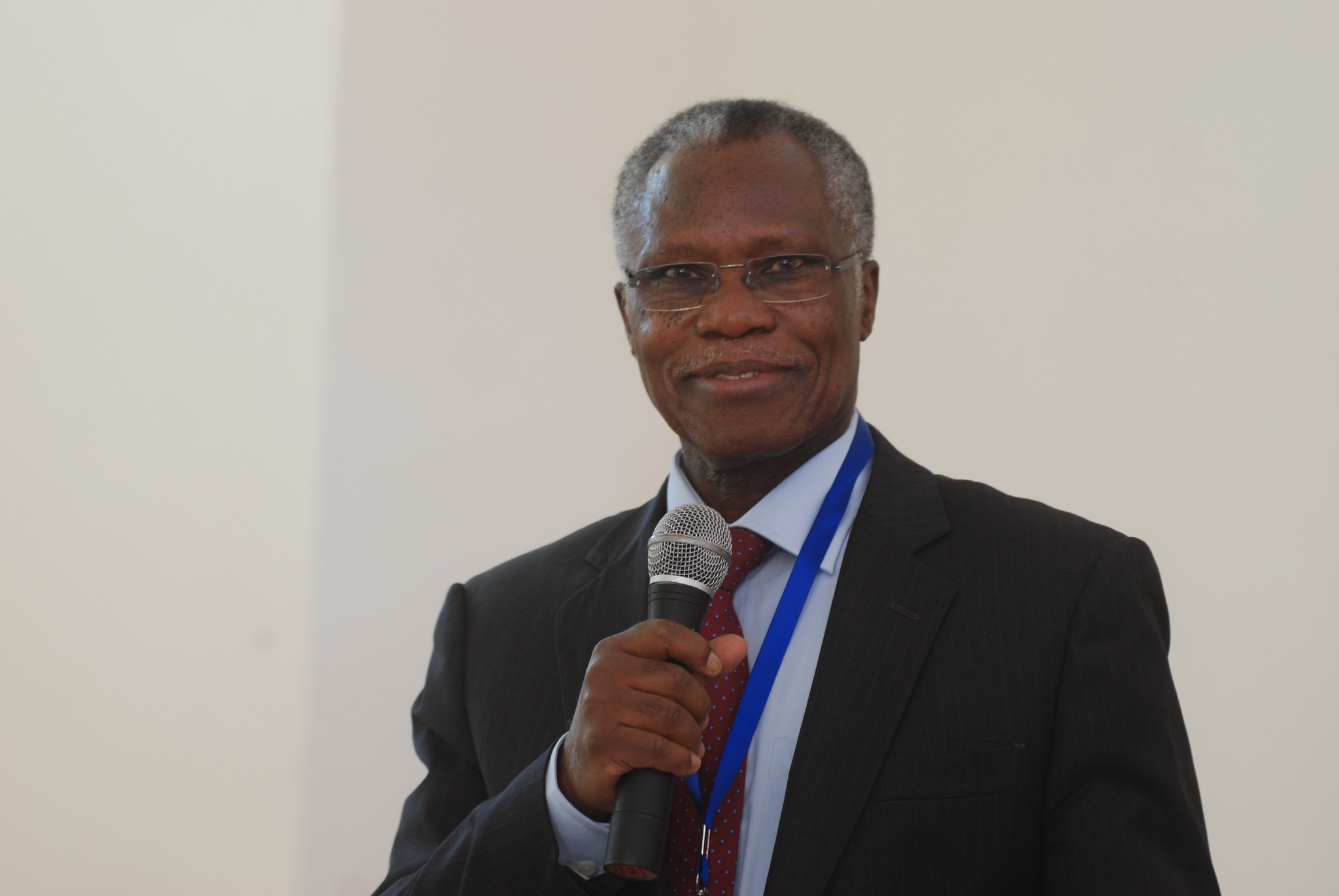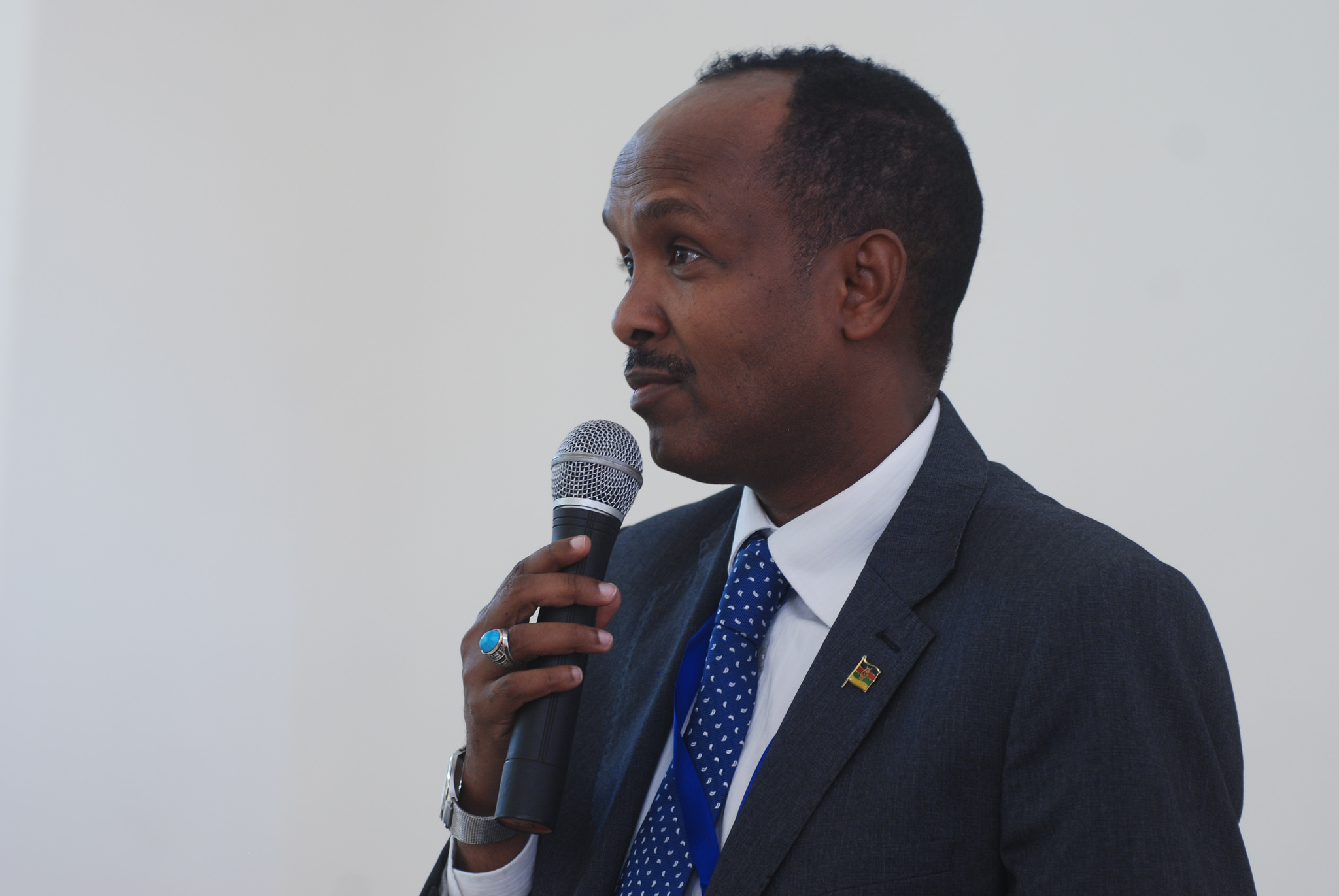From radicalisation to reconciliation
Rev Dr Sam Kobia and Dr Muktar Ogle are Senior Advisors in the Executive Office of the President of Kenya. They spoke together about their trust-building work at a conference entitled 'From radicalisation to reconciliation' in Nairobi on 28 October.
Rev Dr Samuel Kobia, Senior Advisor on Peace, Social Cohesion and Conflict Resolution, Executive Office of the President of Kenya
'No amount of technology and no amount of money can impose solutions', said Dr Ogle, speaking of the challenge of bringing peace to northeast Kenya and neighbouring Somalia. 'Solutions come from within.'
Dr Kobia spoke of the 'Dialogue Platforms' that he and Dr Ogle have set up in which government officials, faith leaders and disaffected youth have the chance to meet and air often divergent perspectives. 'The results are very encouraging,' said Dr Ogle.

Dr Mukthar Ogle, Senior Advisor on Strategic Initiatives for Arid and Semi-arid Lands, Executive Office of the President of Kenya
With a grant from Finn Church Aid to support these trust-building processes, Dr Kobia has purchased 200 DVD copies of The Imam and the Pastor and An African Answer , together with the Resource Guide written by Pastor James Wuye and Imam Muhammad Ashafa on how to use the films to help transform conflict situations.
Dr Kobia invited Dr Alan Channer, director of An African Answer and editor of the Resource Guide, to introduce a preview of the film and describe its influence as an inspiring model of reconciliation.
After the film screening, conference participants met in small groups to formulate 'recommendations for moving from radicalization to reconciliation'. There was unanimity that 'community-based initiatives' are far preferable to 'militarised solutions'. Other suggestions included socialising young boys in ways that do not equate using violence with masculinity, and better using media to foster positive, peacebuilding narratives and action.
Photos by Leela Channer
